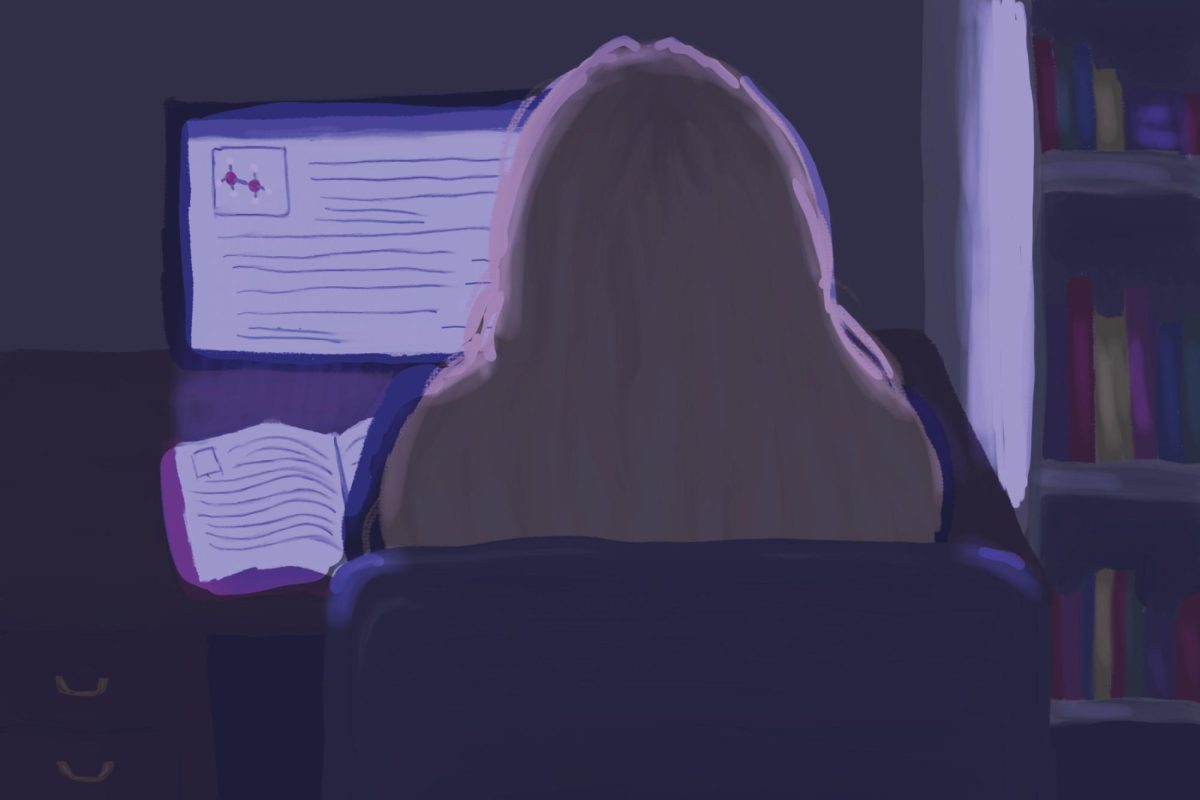It’s a question that many students have been asked after a night of drinking, a simple question that only requires a one-word response: “Are you good to drive?” The response could mean the difference between spending the night on a friend’s couch and spending the night in jail – or worse.
According to data released by the Centers for Disease Control and Prevention in 2010, 621 out of 1,000 people in Alabama admitted to driving drunk, which is considered an above-average rate. To be arrested for a charge of driving under the influence in Alabama, a person must have a blood alcohol content level of .08 percent or higher. For those under the age of 21, that limit lowers to .02 percent.
“Normally [we look for] erratic driving,” said Sgt. Brent Blankley, a public information officer at the Tuscaloosa Police Department. “A lot of times with a DUI, they’ll shift from lane to lane, [or] they’ll hit the center line multiple times. Normally they’re going way under the speed limit because their perception is that they’re going faster than they are.”
Blankley said he sees DUIs from all ages. However, college students face a variety of factors that can influence their decision to drive drunk.
“I think that when you get to that age, and you’re allowed to drink, you don’t know your limit as well as some other people who have [been drinking] longer,” Blankley said. “A lot of people don’t drink until they get to college, so they don’t know how the alcohol affects them as much as somebody who’s older.”
(See also “Dillon Lee arrested for DUI“)
Incoming college students often transition from a world of constant supervision to a world of complete freedom. This sudden liberation, combined with the college lifestyle’s heavy emphasis on binge drinking and the common “it will never happen to me” mentality, can cause students to make unwise decisions.
“College students are certainly faced with more temptation to drink and drive,” said Michael Upton, a Tuscaloosa criminal defense attorney who specializes in DUI cases. “While there has been an increased awareness [about the dangers of driving drunk], there will always be the person that says, ‘I’m fine to drive,’ when they really aren’t.”
Additionally, many individuals don’t realize what a .08 percent BAC actually feels like.
“I think a lot of time people don’t know the level of intoxication they’re at,” Blankley said. “You’ll have a lot of people say, ‘Well I just had a little buzz, so I thought it was fine.’ But at that point, you are intoxicated.”
After being arrested for a DUI, it’s crucial to find a lawyer who specializes in DUI cases, Upton said. The price varies from case to case, but it’s not uncommon to pay thousands of dollars for a qualified DUI attorney.
“One mistake people make when looking for representation in a DUI case is hiring the cheapest lawyer,” Upton said. “Searching for a DUI attorney is not the time to be cheap. A bad result could close doors that could have otherwise remained open if the right attorney had handled the case.”
Being arrested for a DUI doesn’t necessarily mean that a person will be convicted. Depending on each individual case, an attorney might find grounds on which to get the charges dropped.
“The first thing I analyze in any DUI case is whether the police had a legitimate reason to make contact with the driver,” Upton said. “If it can be proven that they didn’t, then breathalyzer test results can be suppressed, which usually results in a ‘not guilty’ finding.”
However, if a driver has been pulled over for a legitimate reason and blows above a .08, it becomes difficult for lawyers to fight the DUI charge in court.
It might seem like it’s possible to avoid a DUI charge by refusing the breathalyzer test, but that isn’t the case. According to dui.drivinglaws.org, all states have implied consent laws, which maintain that by having a license, the driver has automatically given his or her consent to take a blood, breath or urine BAC test. In Alabama, refusing to take the breathalyzer test results in a 90-day license suspension for first-time offenders, and one can still be convicted of a DUI even without taking the test.
(See also “NFL needs stricter policies concerning drunk driving arrests“)
Upon getting arrested for a DUI, the Department of Motor Vehicles immediately places an administrative suspension on one’s driver’s license, according to duiinalabama.net. Because it is an administrative penalty rather than a criminal penalty, this license suspension is handled separately from any criminal charges. Even if the criminal charges are dropped, the license suspension will remain.
In Alabama, first-time offenders face a license suspension of 90 days. In some states, DUI offenders can apply for a hardship license that allows them to drive to and from work and other approved locations. However, this option does not exist in Alabama.
“The number one question I get when meeting with a newly arrested DUI client is, ‘Is there a way I can keep my driver’s license?’” Upton said. “The short answer, in the vast majority of cases, is ‘No.’”
For first-time offenders, a DUI is considered a misdemeanor offense, and the criminal punishment includes a fee ranging from $600 to 2,100 and up to a year in jail. Additionally, the individual must attend a court-approved substance abuse program.
According to alabamaduidefense.com Alabama’s “look-back” period for DUIs is five years, meaning if a second DUI offense occurs more than five years after the first offense, it will be treated by the court as a first offense. Second-time and third-time offenders also face misdemeanor charges, as well as increased fees, increased minimum jail times and longer license suspensions. A fourth DUI conviction results in a Class C felony.
In Alabama, it’s impossible to get a DUI offense expunged from one’s criminal record. This can be especially harmful to graduating students searching for jobs after college. However, while finding employment after a DUI conviction may be difficult, it’s not impossible.
“Be honest on the application if you have been convicted of a DUI,” said Mary Lowrey, director of career education and development at the Career Center. “You may not be asked to elaborate, and if not, don’t bring it up.”
While multiple criminal offenses on one’s record will probably be a red flag for potential employers, some employers are willing to look past a one-time mistake.
“The best thing applicants can do is show that the conviction was an isolated incident,” Lowrey said. “Employers are likely to look at the type of conviction, the date of conviction and whether or not there is a pattern. [Having] no other blemishes on [your] record goes a long way in convincing an employer that you are making better decisions.”
Ultimately, though, when someone chooses to drive drunk, they could risk more than just their bank accounts, their driver’s license and their future employment opportunities – they could risk their life and the lives of others.
“If you choose to get behind the wheel after you’ve been drinking [and] you hurt somebody, you have to live with that for the rest of your life,” Blankley said. “It’s not worth it.”
(See also “Alabama law to require breathalyzers for convicted drunken drivers“)








